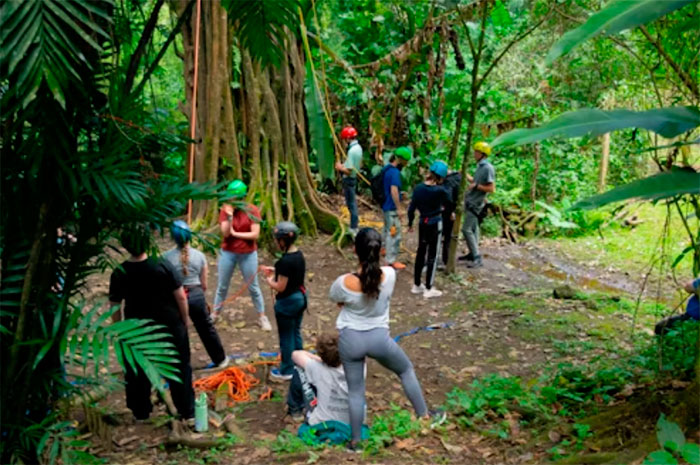Volunteering in Costa Rica offers more than just an opportunity to travel—it invites individuals into a unique space of cultural exchange, personal growth, and environmental stewardship. The country’s natural beauty and strong community values draw thousands each year, but the most transformative moments often arise in unexpected ways. Volunteers frequently begin their journey with idealistic visions, only to encounter challenges that test their patience and shift their perspectives.

From struggling to communicate in Spanish to recalibrating their role within a local project, each hurdle offers a lesson in humility and resilience. Gradually, many come to see that the true value of volunteering lies not in quick fixes or grand gestures, but in the quiet, consistent presence of learning and collaboration. As explained by Coleman Ledbetter, this reflection not only enhances the impact of their work abroad but continues to shape how they approach community and service long after returning home.
Volunteering in Costa Rica
Many programs focus on wildlife rescue, sustainable farming, or supporting local schools. Some volunteers help monitor sea turtle nesting sites, while others assist with English lessons in rural classrooms. These hands-on experiences are often set against the backdrop of lush rainforests, coastal villages, or small mountain towns, where daily life offers a blend of routine and surprise.
People are drawn not only by Costa Rica’s natural beauty but also by its culture. The opportunity to practice Spanish while forming connections with local communities adds a layer of depth to the experience, helping volutnteers see the world through a broader lens.
Expectations vs. Reality
Many arrive in Costa Rica with big hopes—dreams of making an immediate difference, bonding with locals, and living out an adventure straight from a travel blog. The idea of volunteering is often romanticized, shaped by curated images and glowing testimonials that highlight only the rewarding moments.
What’s often overlooked is the less glamorous side of the experience. Some expect constant activity, but instead find long stretches of downtime or repetitive tasks. Others imagine forming instant connections, only to discover that building trust takes time, especially when communication is limited by language. Even the climate or unfamiliar food can become unexpected challenges that slowly reshape expectations.
These differences between what volunteers anticipate and what they actually encounter can be surprising. The gap between intention and reality becomes a turning point, challenging volunteers to reflect on their reasons for coming and what it truly means to contribute.
Challenges on the Ground
Daily life as a volunteer in Costa Rica isn’t always smooth. Language barriers can make even simple conversations feel like puzzles, especially in more remote areas where English is rarely spoken. Adjusting to local customs and rhythms requires patience, adaptability, and a willingness to listen more than speak.
Some programs operate with minimal resources, leading to disorganization or unclear roles. Volunteers might find themselves unsure of how they’re helping or whether their work is making a difference at all. It’s not uncommon to feel frustrated or even question the value of the whole experience. Navigating such situations can test emotional endurance and self-motivation.
Emotional challenges also surface—feeling isolated, missing home comforts, or struggling to find your place in a new community. These moments can be disorienting, but they’re also a natural part of stepping into unfamiliar territory. Often, they become the most defining chapters of the trip.
Growth Through Discomfort
It’s often during the most uncomfortable moments that real growth begins. Whether it’s navigating a miscommunication or adapting to unfamiliar living conditions, volunteers begin to stretch beyond their comfort zones. Over time, this discomfort becomes fertile ground for developing resilience and cultural humility.
Some learn to slow down, adjusting expectations and learning to value small victories. A simple conversation in broken Spanish or a shared meal with a host family can become meaningful milestones. These experiences often leave a deeper impression than anything planned or expected. They remind volunteers that human connection often thrives in the unplanned and imperfect.
As volunteers begin to understand the broader context of their work, they start seeing their own assumptions more clearly. Growth doesn’t always come with a smile—it sometimes arrives through setbacks, awkwardness, and the willingness to keep showing up.
A Shift in Perspective
Initially, many volunteers approach their work with the mindset of helping others. But as time passes, that lens often shifts. They begin to recognize the depth of local knowledge and the strength of the communities they came to support. This realization can challenge deeply held beliefs about aid, service, and leadership.
This change in perspective can be humbling. It’s not uncommon for someone to leave with more questions than answers, and a newfound respect for the complexities of sustainable development. Some even return home with a renewed commitment to social justice or community work in their own neighborhoods.
True impact, it turns out, is less about dramatic change and more about showing up consistently, listening with intent, and respecting the efforts of those who live and work there every day.
Preparing for a Meaningful Experience
Choosing the right program is vital. Those who take time to research and ask questions tend to have more rewarding experiences. Reading reviews, reaching out to past participants, and asking about the organization’s partnerships can provide valuable insight.
Being open to uncertainty is another crucial step. The most memorable moments often come from situations that didn’t go according to plan. Flexibility becomes a strength, especially when expectations shift or roles evolve. Embracing the unexpected can lead to a sense of freedom and creativity that structured plans rarely offer.
